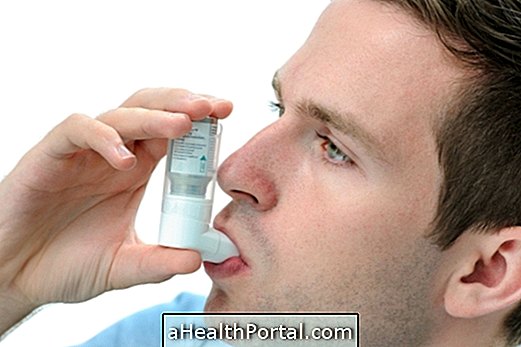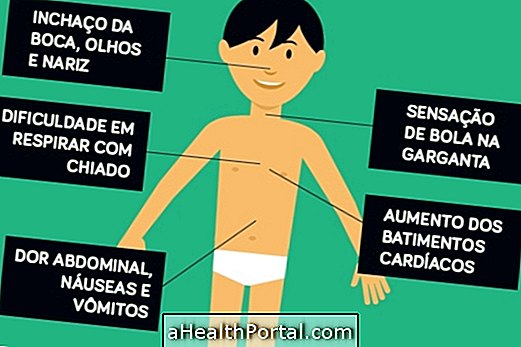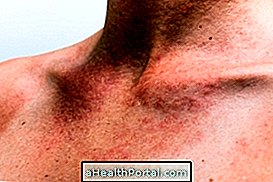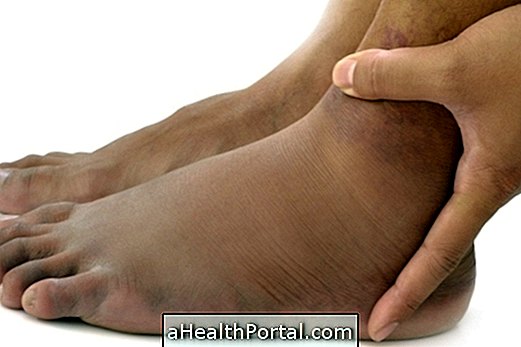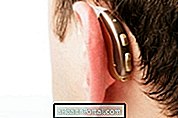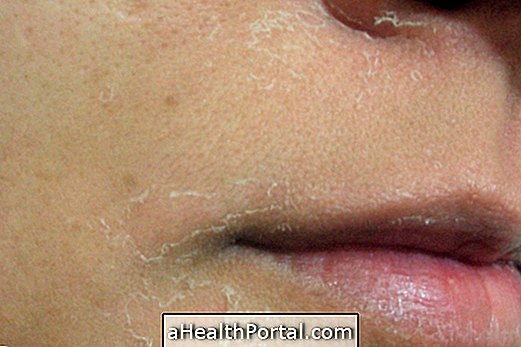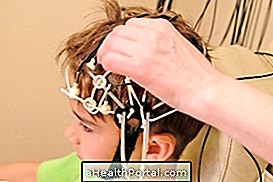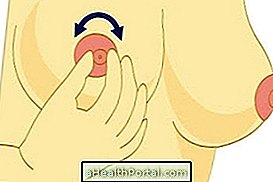In order to be able to stop a crisis of sneezes immediately what one must do is to wash the face and to clean the nose with saline, dripping some droplets. This will eliminate the dust that may be inside the nose, relieving that discomfort within minutes.
Usually constant sneezing and waking sneezing crises are caused by allergic factors, so if a person has asthma or rhinitis, the chances of suffering from frequent sneezing are greater.
Some other strategies to manage to stop sneezing are:
1. Look at the light
Staying staring at the light on or directly into the sun is able to block the sneeze reflex immediately, making the person feel better in no time.
2. Biting the tongue
Another very effective strategy is to focus your attention on biting your tongue when you feel like sneezing. This is a great strategy for embarrassing times, such as at a wedding or an important meeting.

3. Keep the environment clean
People who suffer from allergies are more likely to have a respiratory allergy, so they should sleep, work and study in clean, dust-free, dust-mites and food scraps. Cleaning the room daily and changing bedding weekly are great strategies to keep the room clean, but in addition it is also recommended to wipe the furniture with a damp cloth to remove as much dust as you can.
4. Wash inside the nose
In a crisis of sneezing, washing the face helps, but it is better to still drip a few drops of saline, sea water or saline into the nostrils to actually eliminate any microorganism that is causing this allergic reaction. The nasal lavage that we indicate here also helps a lot.
5. Drink water
Drinking 1 glass of water is also a good way to control sneezing because it stimulates other parts of the brain and still humidifies the throat, which also helps to purify the airways.
6. Bathing
Taking a warm bath with steam around you is also a good strategy to stop sneezing fast, but if that is not possible, boil some water and inhale a little the water vapor coming out of the pot also helps to purify the nostrils, ceasing the crisis of sneezing.
7. Use Allergy Remedies
In case of asthma or allergic rhinitis, the pulmonologist or allergist may indicate the use of allergy-controlling drugs such as bronchodilators, corticosteroids or xanthines such as Salbutamol, Budesonide, Theophylline and Mometasone to control symptoms and improve the person's quality of life. In these cases the drugs should be used daily for life, because they reduce secretions, facilitate the entry of air and reduce the chronic inflammation that is always present in the airways.
What causes constant sneezing
The main cause of constant sneezing is allergic reactions that can affect anyone but that especially affect people with asthma or rhinitis. Some factors that can trigger a sneezing crisis are:
- Dust in place, although clean;
- Smell of perfume in the air;
- Pepper in the air;
- Smelling flowers;
- Flu or cold;
- Being in a closed environment, with little air renewal;
In case of smelly sneezing this can indicate, for example, a nasal infection or sinusitis, which is when microorganisms develop inside the airways and end up causing headache and feeling of weight on the face, besides bad breath. Learn all the symptoms of sinusitis and how to treat it.
Why not sneeze
Sneezing is an involuntary reaction of the body that serves to clear the airways of any microorganism that is causing irritation at this site. When attempting to hold a sneeze the force performed may even lead to the rupture of small blood vessels in the eyes, perforated eardrum, diaphragmatic problems and rupture of the throat muscles, which is a serious situation, which requires surgery as soon as possible .
The most common is to sneeze once, but in some cases you can sneeze 2 or 3 times in a row. You may suspect an allergic crisis if you need to sneeze more than that.
When to go to the doctor
Consultation with an allergist or pulmonologist is advised if you present:
- Constant sneezing and no cold or flu;
- Wake up and have a sneezing crisis more than once a week.
And also in case of blood sneezing, because although the most common is that this is caused by the breaking of small blood vessels from inside the nose, if the blood is also present in the phlegm or the cough, it should be evaluated by a professional of Cheers.

